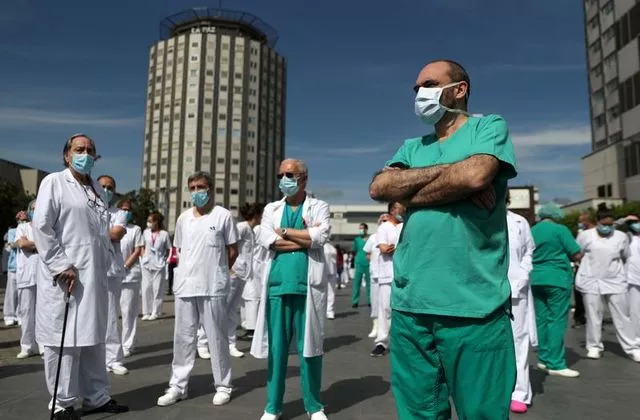What doctors have learned about fighting Covid-19
In the six months since the new virus began spreading around the world
In the six months since an entirely new coronavirus began spreading around the world, doctors and hospitals have learned a lot about how to treat patients with Covid-19, the potentially deadly disease caused by the virus.What doctors have learned about fighting Covid-19:
* Patients are at increased risk of blood clots, and blood thinning agents can help.
* “Proning” - putting patients on their stomachs to relieve pressure on the lungs - can stave off the need for mechanical ventilation.
* Besides the respiratory system and lungs, the coronavirus can attack many other organs, including the heart, liver, kidneys, and brain.
* The most promising treatments so far seem to be the anti-viral remdesivir; dexamethasone, a steroid to treat the body’s inflammatory response to Covid-19; and plasma donated by patients who have antibodies to the disease.
* More widespread testing and quicker results helps relieve pressure on hospitals.
* Information-sharing among health professionals worldwide is crucial.
* Prevention is critical. Doctors are relying on the public to do their part with good hygiene, masks and social distancing.
Some of the biggest unknowns:
* Exactly which treatments will work for which patients.
* How quickly some treatments will gain widespread distribution, especially remdesivir.
* How long it will take for Covid-19 patients to recover.
* The long-term effects of the infection.
“If the best lesson we’ve learned is to turn patients onto their stomachs instead of their backs,” said Valory Wangler, chief medical officer at Rehoboth McKinley Christian Health Care Services, in Gallup, New Mexico, “it means we’re far from a miracle cure.”


COMMENTS
Comments are moderated and generally will be posted if they are on-topic and not abusive.
For more information, please see our Comments FAQ